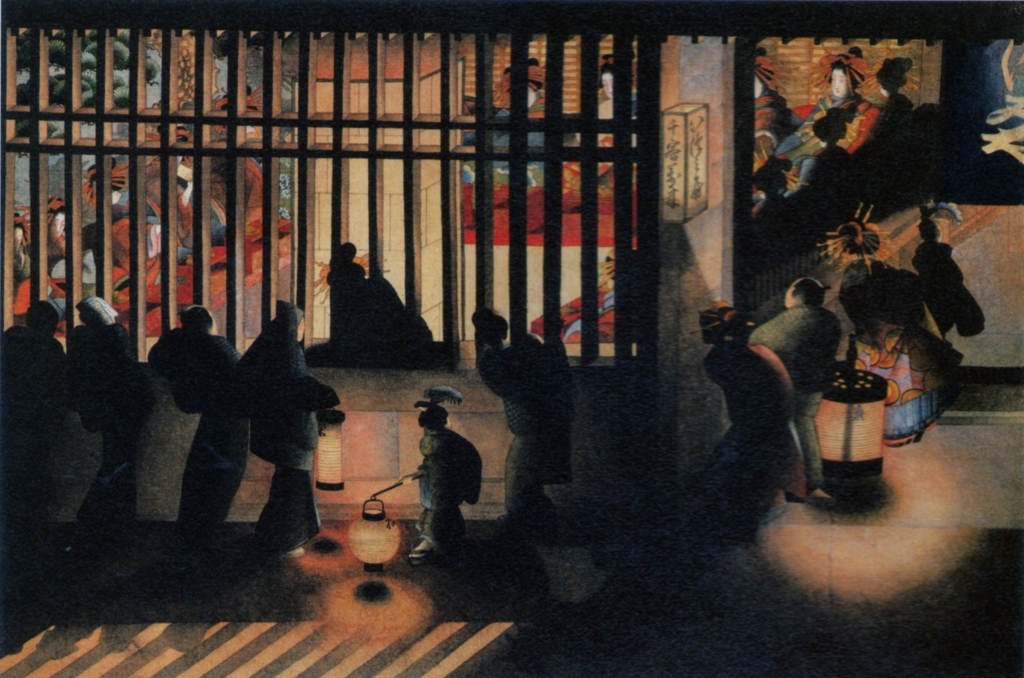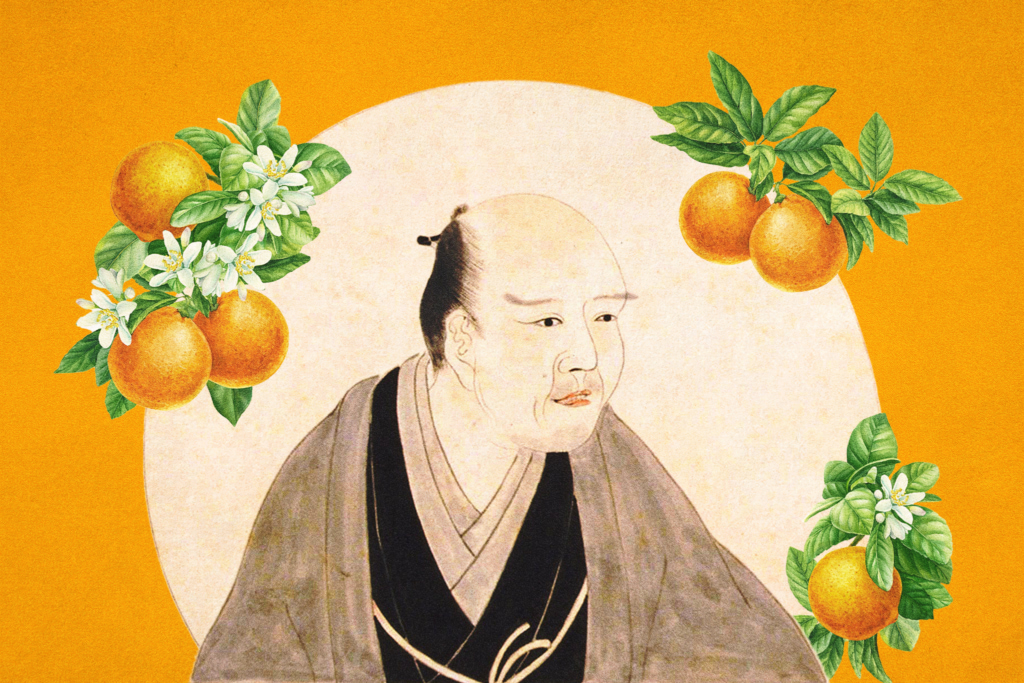In the late 17th century, the powerful Edo merchant Kinokuniya Bunzaemon visited a temple with a few friends when a poor farmer approached them and asked the poet in the group to pray for rain. Bunzaemon agreed and, a few moments later, the clouds above the city burst, causing the farmer to remark: “The gods unplug their ears for the rich.” The story is most likely apocryphal, as are many tales about Bunzaemon. But somewhere behind the legend, there are enough kernels of truth to support the theory that Bunzaemon really was favored by the gods.

The Mikan Madman
Born the son of a merchant in the Kii Province (modern-day Wakayama Prefecture), Bunzaemon first made his fortune in mikan tangerines. One year, Kii unexpectedly produced massive amounts of the fruit, drastically lowering its prices. However, the opposite thing was happening out east in Edo (modern-day Tokyo) where the value of the mikan was skyrocketing due to its scarcity caused by the sea passage between Kii and the capital being blocked by unusually stormy weather. Bunzaemon, however, couldn’t see the waves because of the huge yen signs in his eyes.
Around the same time, Edo was preparing for the Bellows Festival, where blacksmiths scatter mikan from their rooftops to honor Inari, who was primarily known as the deity of rice cultivation. This raised the price of the citrus fruit even further. Seeing a golden opportunity in the orange fruit, Bunzaemon loaded an old ship with mikan and hired a Suicide Squad of sailors. Despite almost dying a few times along the way, he somehow managed to sail into Edo with his cargo intact. He became obscenely rich overnight and his exploits were immortalized in songs and eventually in the 1927 short film Mikanbune (A Ship of Oranges), one of the earliest examples of Japanese animation.
Even in Old Japan, There Were No Ethical Millionaires
The mikan journey was just the beginning of Bunzaemon’s good fortunes. His next big score came about when Osaka was suffering from a plague epidemic. By then, Bunzaemon was based in Edo, and when he heard what was happening out west, he immediately bought as much salted salmon as he could. He then sent agents to Osaka to spread rumors that salmon was some kind of miracle cure, so when he rode into the city with his fish, his entire inventory sold out in a matter of days.
Bunzaemon also made a bundle investing in lumber and construction thanks to government contracts most likely obtained through bribery. He was famous for his lavish pleasure barge parties on the Sumida River where government officials were wined and dined in the company of musicians, geisha and prostitutes. It was also during these cruises that Bunzaemon allegedly liked throwing his gold and lacquer cups overboard so they could later be found by some lucky commoner downstream.

Yoshiwara Koshisaki no zu (Yoshiwara Night Scene) ukiyo-e painting by Katsushika Oi, color on paper | Image by Wikimedia Commons
The King of Edo’s Red-Light District
Bunzaemon loved prostitutes. A frequent visitor to Edo’s famous Yoshiwara red-light district, he often threw massive parties that went on for days and consumed every bit of food, every bottle of alcohol and every working girl in the vicinity. Not wanting to be accused of doing things halfway, though, Bunzaemon once decided to see what it would feel like to own all of Yoshiwara. After some negotiations, he successfully rented the entire brothel town for a day. The Great Gate to Yoshiwara was closed and Bunzaemon and his friends spent the day partying with thousands of prostitutes while drinking and eating as much as they wanted at whatever establishment they pleased.
Bunzaemon’s business rivals often teased the salted salmon swindler about his love of prostitutes, pointing out that they go to bed with anyone who has money. Bunzaemon took that personally and decided to prove them wrong by renting out all of Yoshiwara, again, and inviting three of his biggest critics to the district. When they got there, they were refused service at every teahouse and restaurant where the staff informed them that everything had been bought out by Bunzaemon. They couldn’t even get the attention of the lowest street walking girl, all of whom were similarly contracted for the night. And so, the three men with money in their pockets had to leave Yoshiwara sober and sexually frustrated. They also had to leave on foot because Bunzaemon rented out every boat and palanquin in the area. Or so the legend goes.
Kinokuniya Bunzaemon — The Gods’ Favored Son
Bunzaemon was not infallible when it came to business and, in fact, lost most of his money after the government contracted him to mint coins for them. The venture was a colossal failure. The coins were of such poor quality that they were in circulation for only a year. After that, Bunzaemon retired from business. Years later, a rumor spread that he eventually died in poverty because it made for a good story. In reality, though, Bunzaemon lived comfortably until his death thanks to all the rent he collected from his construction projects.
Today, his name primarily lives on in alcoholic drinks, with a surprising number of modern sake, shochu and mikan liquor brands bearing the name “Bunzaemon.” Given everything we know about the man, it probably would have made him smile.









